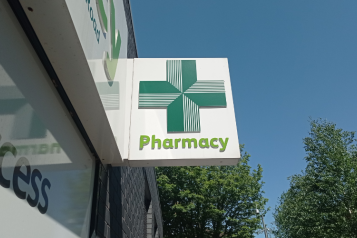Deal reached to provide extra funding for pharmacies

The Department of Health and Social Care reached an agreement with Community Pharmacy England to provide an additional £617 million for pharmacy services over two years.
What's included in the deal?
Overall, the new pharmacy contract will mean NHS pharmacies in England will receive £3.073 billion funding for core work such as dispensing prescriptions, in 2025-26.
A further £215 million will be made available to continue the Pharmacy First programme - as an alternative to GP appointments for patients to be seen for certain conditions – as well as funding blood pressure checks and other extra services.
Emergency hormonal contraception, also known as the 'morning after pill', will now be available for free at every NHS pharmacy, replacing the previous system, which saw some women charged as much as £30.
The contract will also make it easier for pharmacies to change the timing of their core opening hours. This flexibility would allow them to choose when to deliver their usual 40 contracted hours over a week to avoid opening when it's not 'economically viable'.
Responding to the announcement, Chief Executive Louise Ansari said:
"We welcome the increased funding announced by the government for the community pharmacy sector to help meet the pressures we've identified over the past 18 months.
"Our research has shown how the public have been affected by temporary and full-time closures of pharmacies. People also tell us that they endure long waits in-store to collect prescriptions due to staff or medicine shortages.
"We also welcome confirmation that emergency hormonal contraception will be provided for free at every NHS pharmacy, replacing the previous arrangement, which amounted to a postcode lottery. This is an important step in tackling the inequalities caused by healthcare costs.
"We urge Integrated Care Boards to consult with their communities to understand how they could benefit from any changes to opening hours sought by pharmacies. It's also important that any changes are fully communicated to the public to avoid people wasting time travelling to pharmacies when they are not open for business and that pharmacies, commissioners, and NHS England do more to raise awareness of the Pharmacy First scheme."


